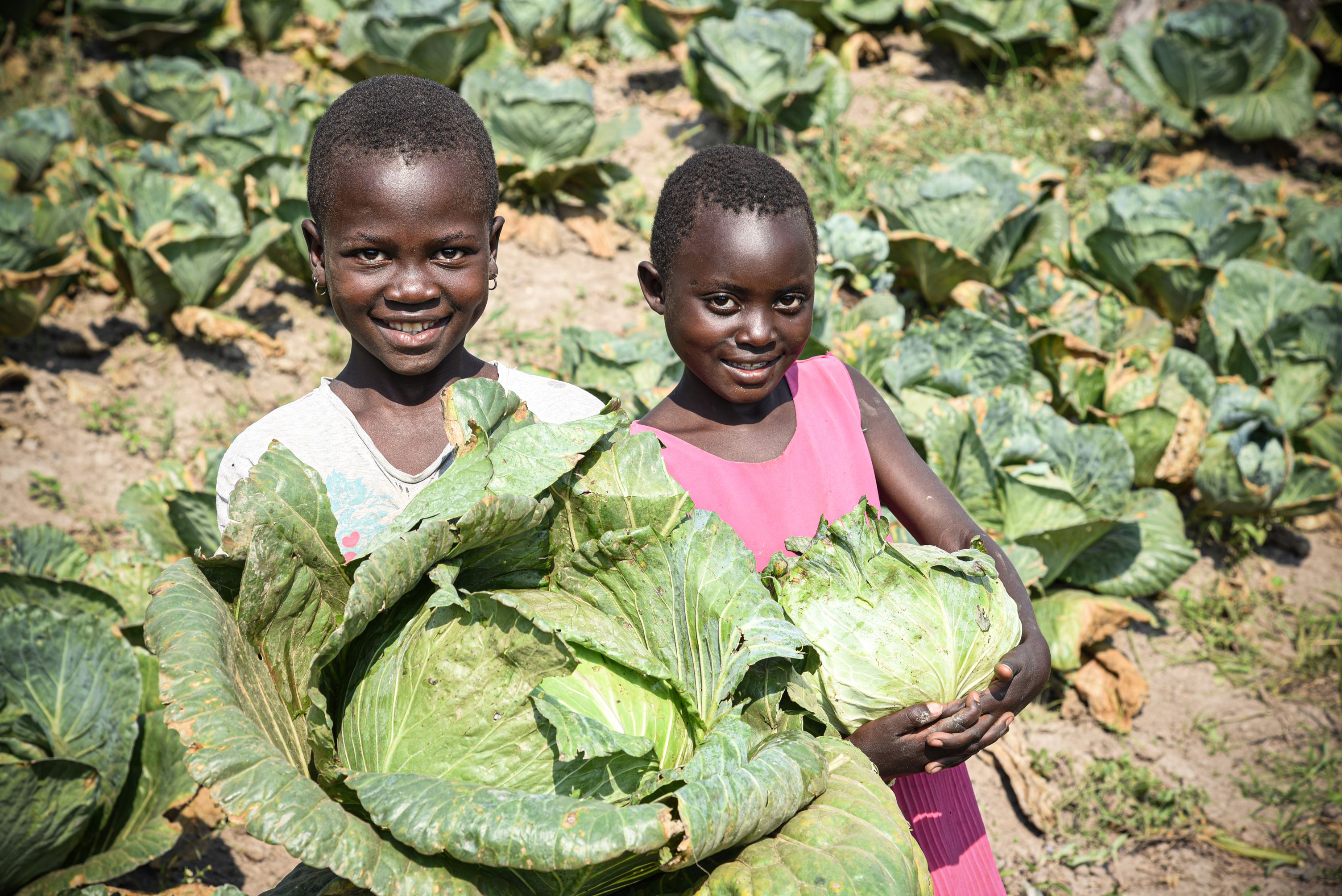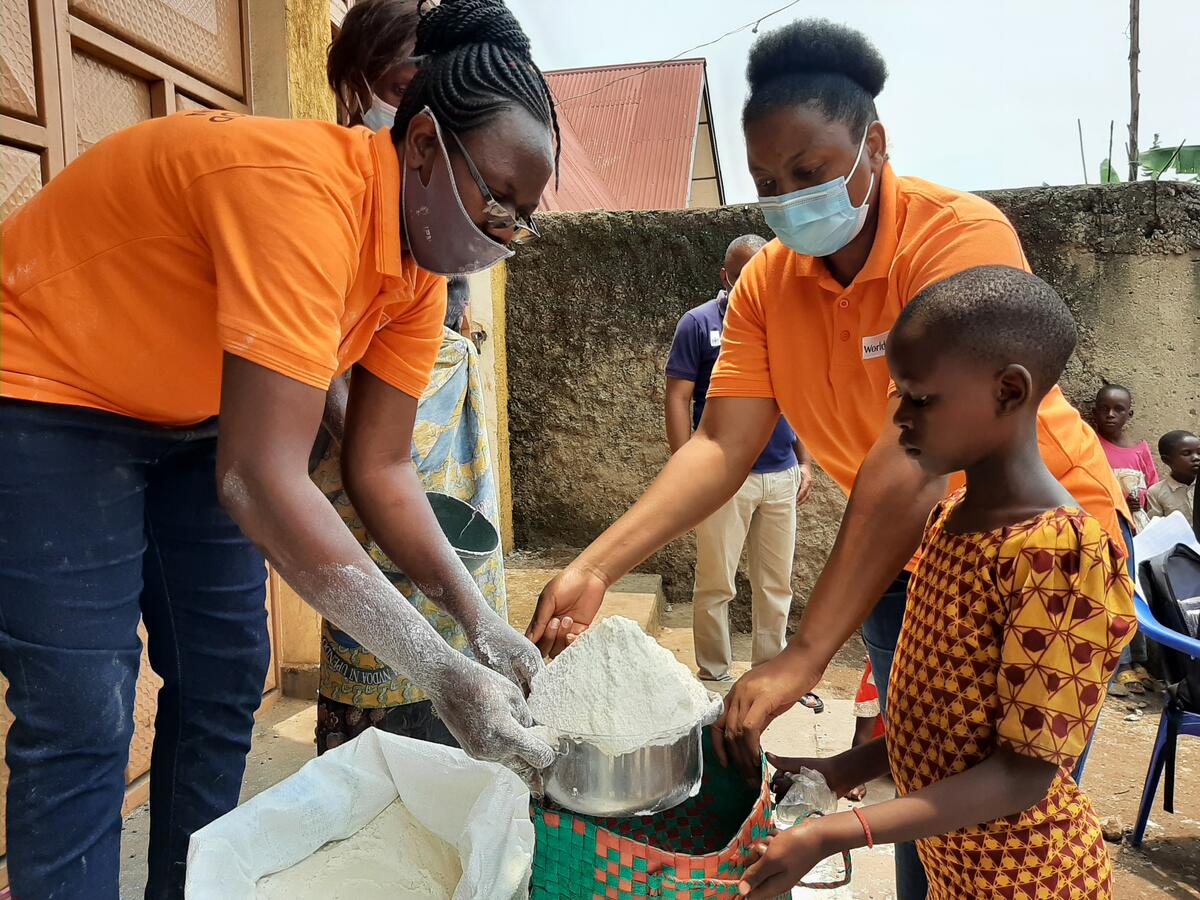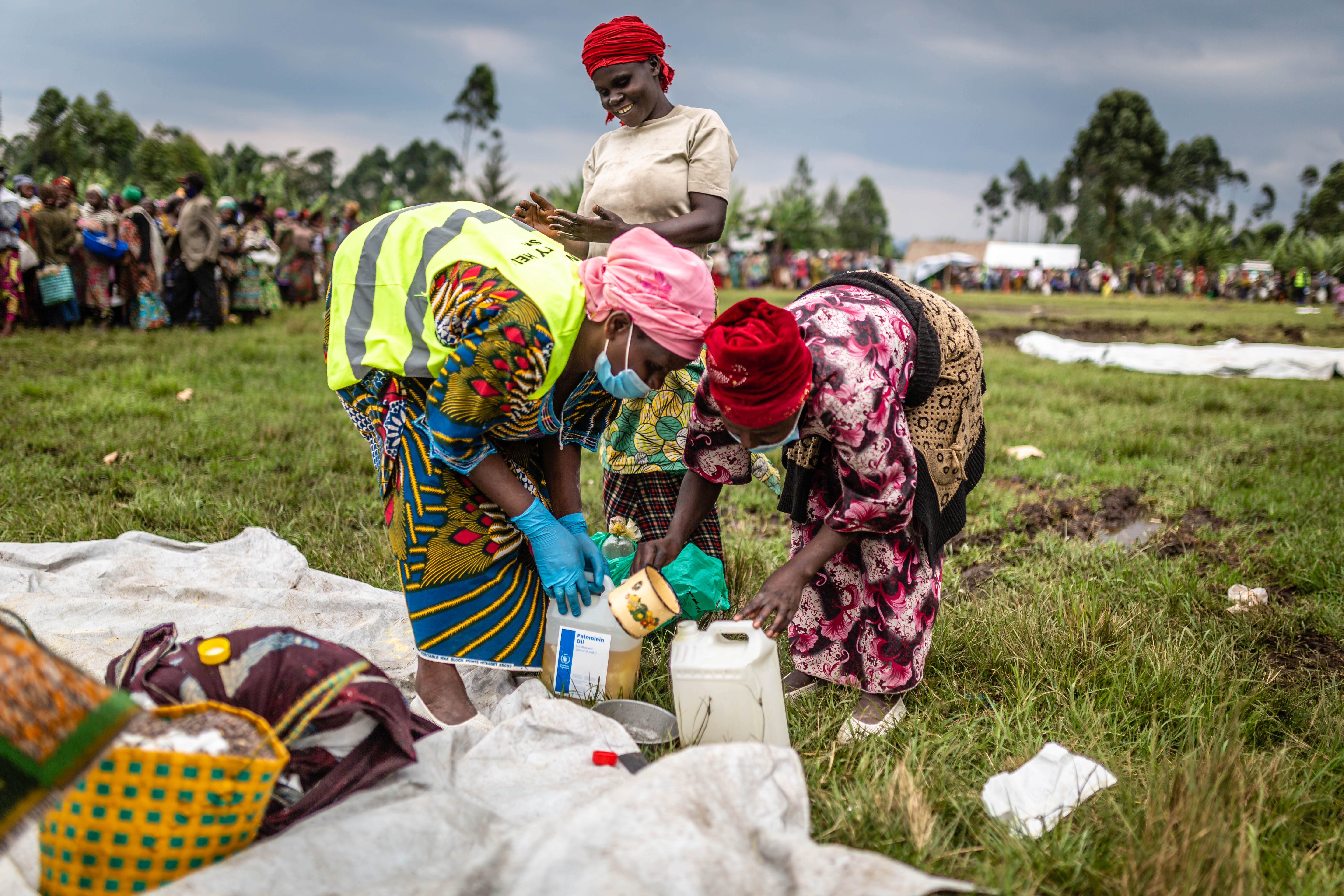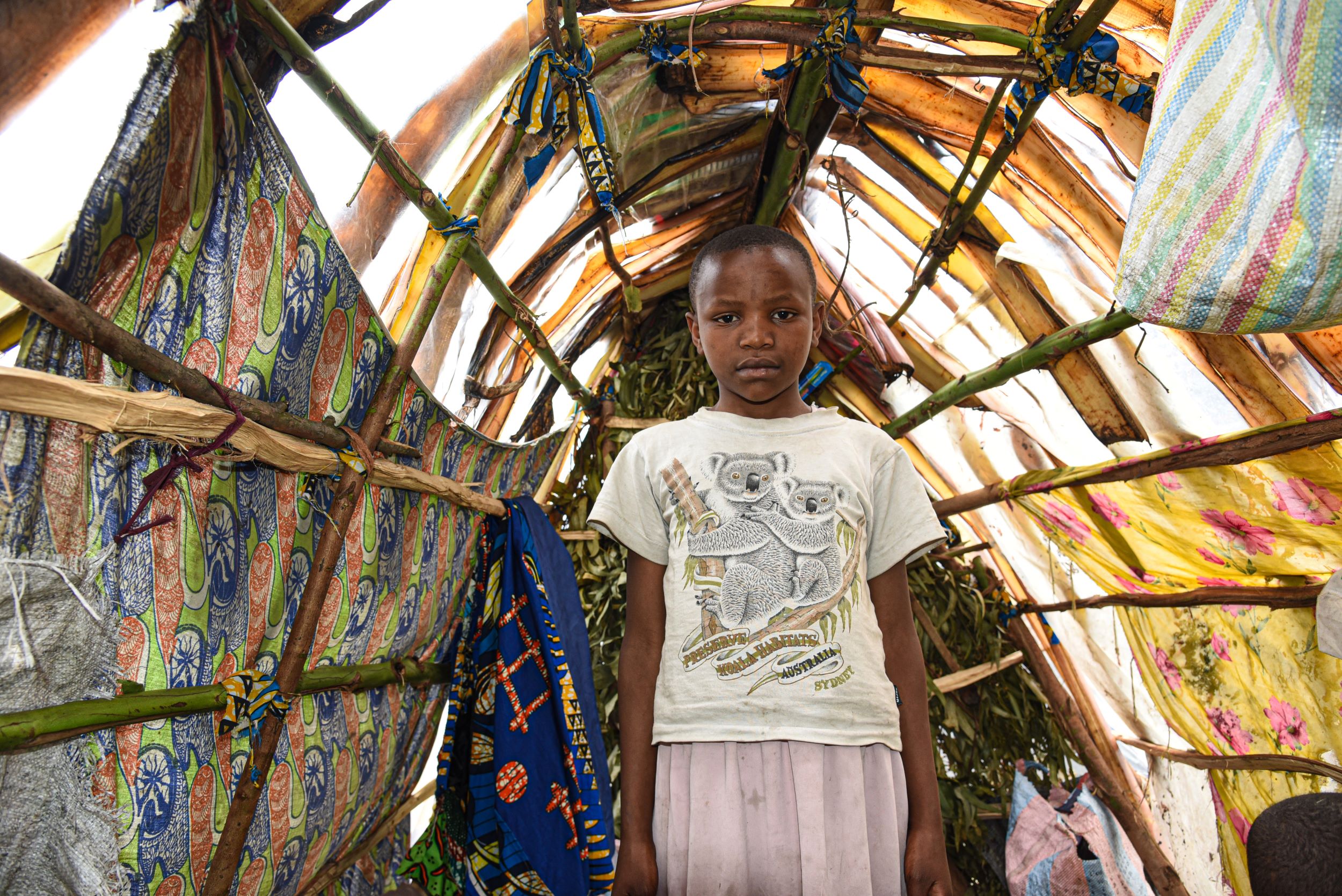
Running for safety in DRC
“We were sitting at home and all of a sudden we heard gunshots”
Thursday 1 June is Global Day of Parents, an annual day marked by United Nations since 2012. This day is an opportunity to show appreciation of what parents do and the sacrifices they make to give their children the best possible start in life.
Parents across the world frequently make difficult decisions that impact the lives of their children. In some places, these decisions can mean life or death, especially in the face of disaster or conflict.
The following stories are from eastern Democratic Republic of Congo (DRC) where violent conflict and a hunger crisis are forcing people from their homes into a life of uncertainty.
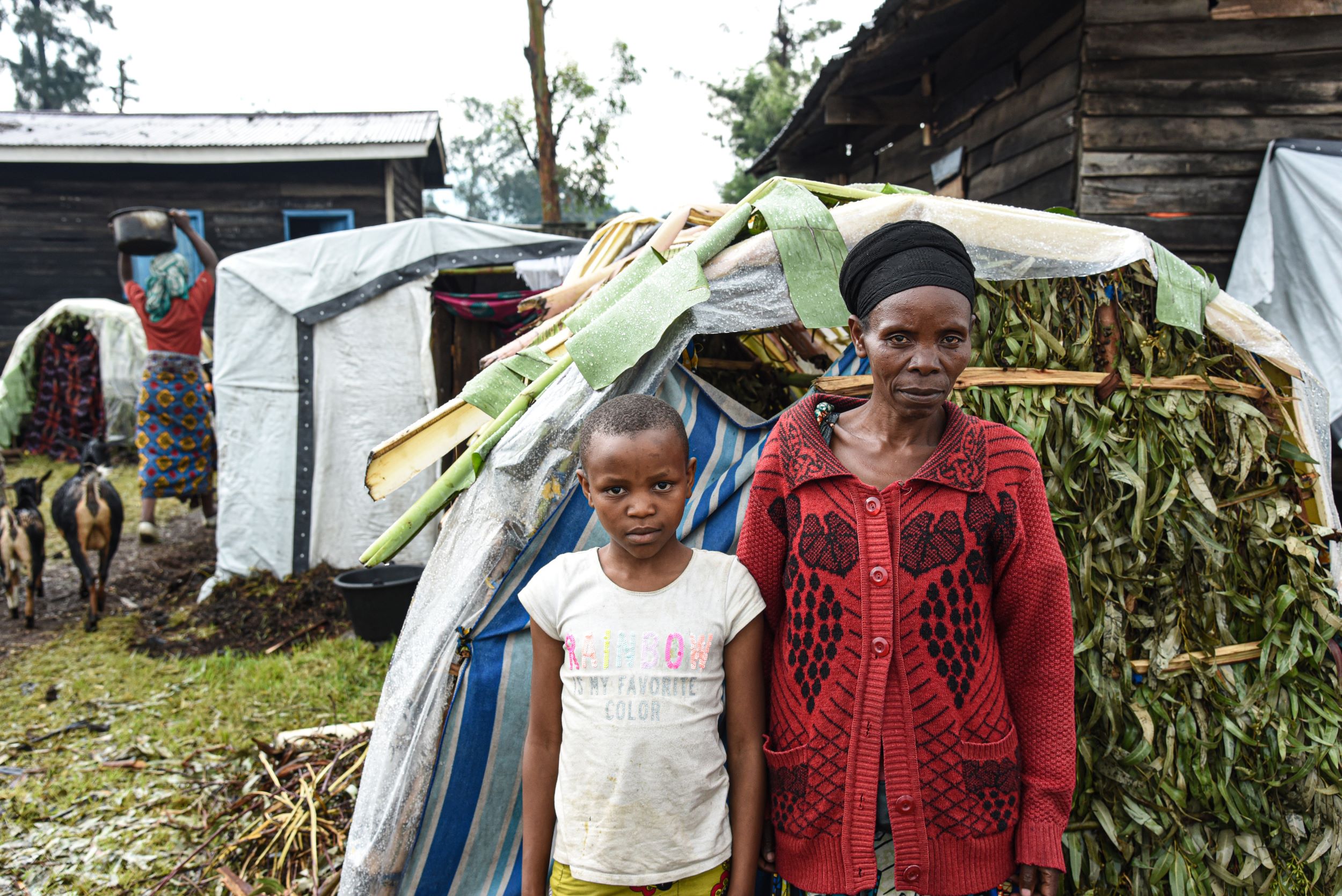
Forced to flee
Honorata, 48, was not at home when gunmen entered her village in eastern DRC. Completely unaware of what had happened, she returned to discover everyone had disappeared.
She was frantic with fear and worry.
Her ten-year-old daughter, Tumaini, had been looking after her siblings; when she heard shooting, she was forced to make a difficult choice.
“We were sitting at home and all of a sudden we heard gunshots,” recalls Tumaini. “I was so scared! Daddy and mummy were not there so we had to run away alone and follow the crowd.”
Tumaini is one of thousands who were displaced after fighting broke out in eastern Democratic Republic of Congo (DRC) last year.
“I walked 35 kilometres on foot and slept outside to feel safe,” she says. She and her siblings ran from the danger without knowing where they were going. They only stopped when they were clear of the sound of gunfire, taking refuge in a camp to the north of Goma.
“We spent the night outside in the cold and without a blanket before Dad and Mum found us the next day,” Tumaini shares.
No one home
Honorata recalls the events of that same day: “I was in the bush making charcoal and when I came home to pick up the children, I found no one. I took the road to Goma on foot. On my way, I met a child about two years old, called Akilimali, who was alone on the road, hungry and barely speaking. I took him with me and the day after I met my children here in the camp.
Tumaini’s dad also joined them, building a shelter for the family to stay in. It’s just two metres long and is built from tree sticks and eucalyptus leaves. It houses the seven siblings as well as their parents – a far cry from the house they left behind.
The camp where Tumaini and her family are staying hosts 60,000 displaced people, the majority of whom are children. Initially, there was no access to water or sanitation. People were also lacking essentials for cooking.
Distributing food
World Vision has distributed over 1,200 tons of food to 155,000 internally displaced people like Honorata and Tumaini in the territories of Rutshuru and Nyiragongo. The government and humanitarian agencies have been assisting these most recently displaced communities, but the need remains enormous given the ever-increasing flow of displaced people.
READ MORE: Ending child hunger
"I don’t have enough to feed myself and my children”
Elisabeth, 40, also fled the fighting, along with her children. Fleeing while pregnant, she gave birth shortly afterwards. When Elisabeth went into labour, her neighbours helped because there was no way to get to the hospital.
“I thank God,” says Elisabeth, “because I gave birth well despite the circumstances, but the big challenge is that I don't have a basin to use to wash the baby and I don't have enough to feed myself and my children. I would be grateful if I even got a tarpaulin to build a waterproof shelter. We are exposed to diseases because of the less clean environment we live in. We suffer so much!”
In addition to conflict, DRC is experiencing a hunger crisis. Elisabeth says that she and her family eat once a day.
“How do you survive in spite of the famine?” she asks. “We eat once a day and in very small quantities, and it is only when the oldest of my children has gone to look for and found vegetables that she asks for in the fields not far from here.”
Elisabeth has received support from World Vision including a WASH kit. This will help her collect and store water in ways that will keep her children safe from waterborne diseases.
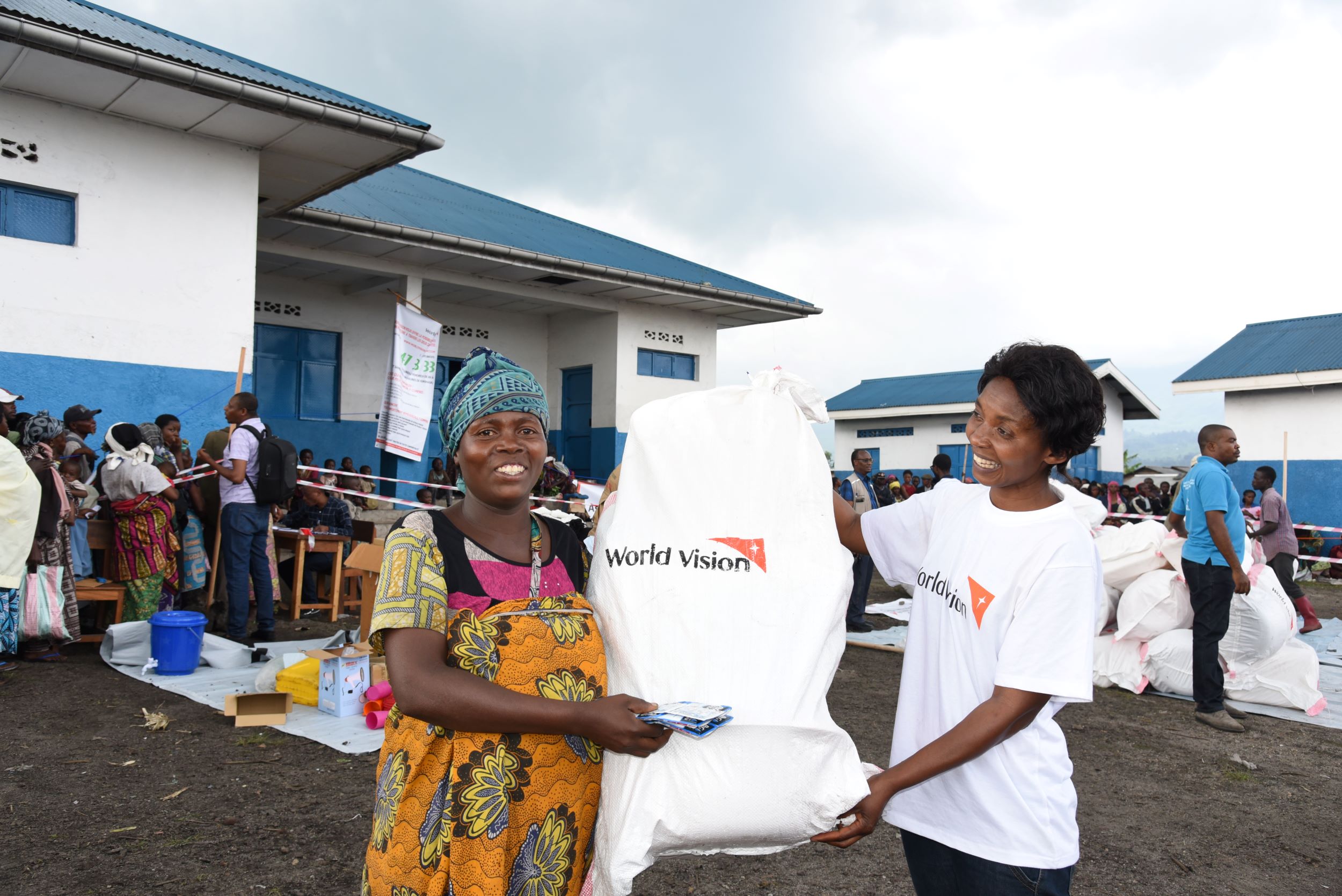
Vivid memories
Germaine, 35, has also received help from World Vision. “I have been here for a month now,” she says as she waits to collect supplies, “yet I still vividly remember the night I ran with my children.
“It was risky to follow the road, so for four days I roamed through the forest with my children who can barely walk. We lost the way several times. Thankfully, we eventually got here.”
Life in the camp is difficult. When Germaine goes to look for food, she has to leave her 12-year-old daughter Ushindi to look after her young siblings. Ushindi, whose name means victory, looks sorrowful as her mother shares the family’s ordeal.
“Being left in to look after two sets of twins and an eight-month-old in a crowded camp far from home is not a task any parent would wish for their 12-year-old girl,” says Aline Napon, World Vision’s National Director to the DRC. “We want to do more, and thankfully, with support from our partners World Food Programme, we hope to distribute food to homeless families,” Aline adds.
World Vision and other humanitarian agencies are contributing to food, nutrition and clean water in a crisis that is underfunded – in a country where nearly 27 million people are in need of humanitarian assistance.
This recent conflict in DRC has exacerbated an already challenging situation. Prices for critical food items like beans, maize flour, fish, and cooking oil are not making it any easier for the displaced, who fall under the 64% of DRC’s population that live on less than $2.15 a day.
Forced from home
Young children like Tumaini and Ushindi are losing what should be carefree childhoods after being forced from home. Like many displaced children, their lives have been changed in an instant. Living in a camp where conditions are harsh, they are at high risk of violence, neglect and exploitation.
Between disaster and recovery, there is their hope, their courage.
In addition to food, water and other essentials, World Vision provides Child Safe Zones where trained staff help children express themselves through play and art. They also give parents like Honorata, Elisabeth and Germaine peace of mind that their children are okay while they deal with the practicalities of food and shelter. Safe Zones provide a sense of stability, care and belonging in the middle of chaos – a place to be a child.
Thanks to the generosity of World Vision’s supporters, children like Tumaini and Ushindi can access Child Safe Zones and find courage and strength to survive, recover and build a future.

